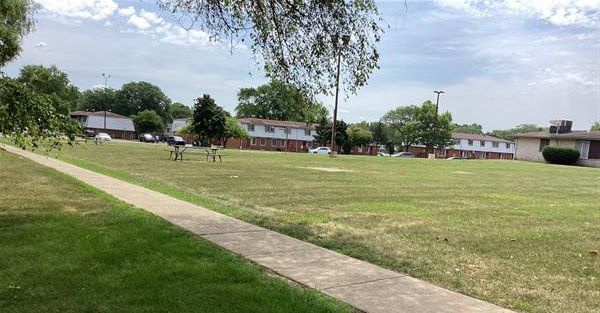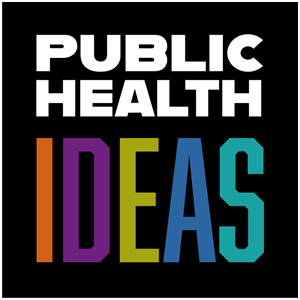Prevention Research Center of Michigan tackles vacant lots, built environments to improve health, well-being

Renewed $5 million in CDC funding expands academic-community partnerships in Flint, Michigan
The Prevention Research Center of Michigan has spent decades researching ways to create safer, more inviting, and accessible neighborhood spaces to improve physical and mental health. Now, $5 million in renewed funding from the U.S. Centers for Disease Control and Prevention will enable the center to continue its community-based participatory research projects through at least 2029.
The center’s core research focus for the next five years will build upon prior work and evaluate the effectiveness of vacant land reuse programs to create equitable and accessible spaces for physical activity in Flint, Michigan.
High vacancy rates, often linked to higher crime and lower physical activity rates, negatively impact residents' psychological well-being. Through the transformation of vacant land into parks or green spaces, the project aspires to reduce crime, boost social capital, enhance well-being, and increase physical activity opportunities. The project will partner with local health departments to address differences in physical activity participation among African American and Latino adults.
“Transforming vacant land into vibrant spaces for activity ensures that everyone has the opportunity to reclaim their health and build stronger, equitable communities,” said Roshanak Mehdipanah, principal investigator of the project and an associate professor of Health Behavior & Health Equity at the University of Michigan School of Public Health, which houses the center.
The Prevention Research Center of Michigan is one of 20 CDC-funded Prevention Research Centers across the nation, each tasked with working on a core research project in partnership with community organizations. Since 1998, the University of Michigan has hosted a prevention research center, dedicating 20 of those years to concentrated efforts in Flint.
"Flint has unique challenges, but at the same time, it is a resilient city, with residents and organizations all working together to do great things. Our work is designed with some of these local partners to transform these challenges into opportunities for health improvements," said Marc Zimmerman, also a principal investigator of the center and professor of Health Behavior & Health Equity Michigan Public Health. A leading expert in community resilience and firearm violence prevention, Zimmerman also serves as co-director of the U-M Institute for Firearm Injury Prevention.
A cornerstone of the center's success in improving public health is its commitment to community-based participatory research, which emphasizes the involvement of community members at all stages of the research process to ensure community perspectives and needs shape the initiatives. The Prevention Research Center of Michigan’s Community Advisory Board is critical in providing invaluable insights and fostering trust between researchers and residents, ensuring the research is culturally relevant and practically applicable.
Mehdipanah, who is also the director of the U-M Housing Solutions for Health Equity and co-lead of Public Health IDEAS for Creating Healthy and Equitable Cities, says the center’s approach to the project is focused on partnerships with local grassroots organizations to “honor efforts that are already being done.”
“We will collaborate with communities to implement and evaluate local efforts that aim to improve neighborhood conditions and residents’ well-being. Our ultimate goal is to inform best practices that can then be adapted and applied by other communities,” Mehdipanah said.
From 2019-2024, the center’s core project was focused on Health Promotion Through Environmental Design, aimed at evaluating community initiatives like greening vacant lots, building community gardens, and adding art installations to enhance neighborhood safety and improve residents' mental and physical health.
Media Contact
Destiny Cook
PR and Communications ManagerUniversity of Michigan School of Public Health734-647-8650
Public Health IDEAS for Creating Healthy and Equitable Cities
 Michigan Public Health is uniquely positioned at the epicenter of research, resources,
and expertise to rise to the challenge and address some of the world’s most pressing
problems. That is why we launched Public Health IDEAS—which represents Interdisciplinary Discovery, Engagement + Actions for Society—to
increase collaboration and advance research and engagement in key areas of public
health to achieve meaningful, lasting impact.
Michigan Public Health is uniquely positioned at the epicenter of research, resources,
and expertise to rise to the challenge and address some of the world’s most pressing
problems. That is why we launched Public Health IDEAS—which represents Interdisciplinary Discovery, Engagement + Actions for Society—to
increase collaboration and advance research and engagement in key areas of public
health to achieve meaningful, lasting impact.Learn more about Public Health IDEAS for Creating Healthy and Equitable Cities.
